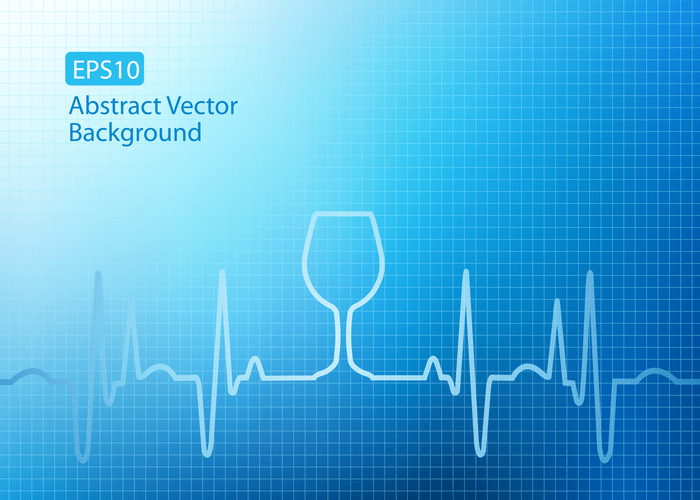These homes aren’t considered treatment, exactly, but they do sometimes provide peer recovery support and coaching. Additionally, many people choose to attend a day treatment program and return “home” to a sober living facility so that they’re never without support. This is a fantastic option for people who don’t feel confident returning to where they previously lived while they were struggling with alcohol addiction. Many people decide to go into an inpatient treatment program when they are first trying to walk away from alcohol addiction. Although inpatient programs require a large commitment (you will live in the facility, usually for 30 days or more), they are great for people who need structure and stability as they’re first navigating sobriety.
Psychological Challenges During Recovery
Recovery from alcohol use disorder is a journey that is best undertaken with the support of a caring and understanding community. Seeking out and embracing the support of loved ones, peers in recovery, and professional addiction treatment providers can significantly enhance the chances of long-term success. People can experience a wide range of symptoms—ranging from mild to moderate to severe—that start and stop at different times for each person. If you drink alcohol heavily for weeks, months, or years, you http://teamofthebest.ru/how-growing-up-with-alcohol-parents-can-affect/ may have both mental and physical problems when you stop or seriously cut back on how much you drink. Generally, you may need treatment for alcohol misuse when you can no longer control the amount you drink or how long you drink. You may also know that you need help with alcohol misuse when you begin experiencing consequences directly related to your alcohol misuse—but you still can’t stop or cut back on the amount that you’re drinking.
Timeline of Alcohol Withdrawal

In the fourth week of abstinence from alcohol, the benefits keep piling up, according to the reports of those who remained sober for more than three weeks. “I could easily sleep 12 hours a night and still feel tired the next morning.” The longer you’re abstinent, the more time your mind and body have to heal. By this time, people are often beginning to feel better and notice more energy. The benefits of abstaining often become apparent around this stage. Some nagging symptoms might linger, but the benefits far outweigh the negative after nine days.
- Still, try to keep in mind that these symptoms — though uncomfortable — are temporary.
- AUD is very common, affecting an estimated 76.3 million people worldwide.
- This article discusses alcohol withdrawal, its symptoms, and potential complications.
- For example, benzodiazepines have been shown to prevent both initial and recurrent seizures.
- Many people decide to go into an inpatient treatment program when they are first trying to walk away from alcohol addiction.
The Truth About What is Dual Diagnosis Treatment Program
The first week can be particularly challenging, with withdrawal symptoms such as insomnia and irritability being common. Alcohol withdrawal symptoms can be greatly reduced or even eliminated with proper medical care. There are specific treatments available for anyone who wants to stop drinking—even after long-term, chronic alcohol use. In addition to experiencing Stage 2 symptoms, those with severe alcohol withdrawal experience severe anxiety and moderate to severe tremors.
- This is where symptoms are usually the most severe, with some individuals displaying delirium tremens — hyperactive autonomic activity that can lead to cardiac collapse.
- Understand how long physical heroin withdrawal lasts and the crucial role of medical support in recovery.
- It is important to contact a doctor if you have concerns about alcohol dependence or alcohol use disorder.
- “I feel great. To all those that are ready to give up because of withdrawals, hang in there! It does get better.”
How alcohol withdrawal delirium is treated
Overall, while the journey has its challenges, sustained recovery leads to notable improvements in mental health, including reduced anxiety and enhanced emotional regulation as time progresses. A healthcare provider will also run tests to rule out other medical conditions that have similar symptoms of alcohol withdrawal or occur alongside withdrawal. These conditions include gastrointestinal bleeding, infection, intracranial hemorrhage (acute bleeding in the brain), and liver failure. This is http://ecoedu.ru/index.php?r=12&id=38 the most severe stage of alcohol withdrawal, and the one that comes with the most serious risks (called “delirium tremens”). Not everyone who withdraws from alcohol will experience these symptoms, but the risks are high. This is why it’s important to be under medical supervision when you are going through withdrawal.

These may still be mild, or the existing symptoms might increase in severity. It’s also important to note that delirium tremens can be life-threatening. You may also receive other medications or treatments for related health issues, like IV fluids for dehydration and electrolyte imbalances or antinausea medicines if you experience vomiting. When you stop consuming alcohol after prolonged, heavy use, your CNS can’t respond or regulate itself fast enough. It becomes overexcited because there’s no more alcohol to slow it down. The first goal of treatment is to keep you comfortable by managing your symptoms.
- With a well-structured recovery plan, individuals can navigate the complexities of their addiction and foster a healthier lifestyle.
- Common medications include benzodiazepines to help treat symptoms like anxiety, insomnia, and seizures.
- Likely, individual patients differ in their underlying risks for withdrawal symptoms.
- Most symptoms will typically peak five days after they begin and will begin to decrease about five to seven days after they begin.
- Some people may feel so “broken” that they almost feel they can no longer experience joy and confidence, or have healthy relationships again.
- AWS is often accompanied by intense cravings to drink and may affect your emotional, cognitive, and physical well-being.
Driving Under the Influence of Prescription Drugs
Take our free, 5-minute alcohol misuse self-assessment below if you think you or someone you love might be struggling with an alcohol use disorder (AUD). The evaluation consists of 11 yes or no questions that are intended to be used as an informational tool to assess the severity and probability http://oblepiha.com/calorie/fruits/1000-sok-greypfruta-konservirovannyy-podslaschennyy.html of an AUD. The test is free, confidential, and no personal information is needed to receive the result.